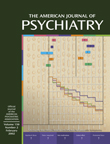The Human Side of Cancer: Living With Hope, Coping With Uncertainty
Treating the patient with cancer is an onerous task that most psychiatrists will face during their professional careers. Working with such patients reifies psychiatry’s medical heritage but demands that patient and physician be sufficiently informed about the disease process, its treatments, and the psychosocial challenges that cancer presents. Fortunately, Dr. Jimmie Holland, in conjunction Sheldon Lewis, a health writer, have given us a book that provides such information for both patient and physician in a readable and orderly manner. Dr. Holland is the international leader of psycho-oncology, a subspecialty of consultation psychiatry. She had already organized and edited the standard text in this field, Psycho-oncology(1). In The Human Side of Cancer, she now has written a book for patients and mental health professionals that will clearly be the standard volume for patients to read.
As the title implies, the book emphasizes the human side of cancer, but without ignoring the scientific aspect of the disease. The humor and humanity in the book are inspiring and provide hope and courage for both patient and psychiatrist. This is essential because cancer has an impersonal component wherein the individual experiences the neoplastic illness as a terrifying biological invasion of their well-being. The impersonal treatments, which include medication, surgery, and radiation, may all have serious psychological side effects such as delirium, depression, and anxiety. In addition to the impersonal issues, the psychological reaction to these terrifying diseases is discussed. Finally, the interpersonal elements of the cancer experience are reviewed.
The book is organized by considering the psychosocial stages that the cancer patient faces (2). First, the diagnostic stage demands recognition that there is something wrong, coping with the fact that one has cancer, and choosing the appropriate treatments. This book elegantly reviews necessary treatments and repeatedly reminds the reader that complementary treatments may improve quality of life but are no substitute for the empirically demonstrated treatments, no matter how onerous are their side effects. From diagnosis and initial treatment, the next stage is that of remission, where there may well be a “waiting game” as the individual anxiously attempts to resume a normal life. The chapter “I’m a Survivor—Now What?” carefully reviews the task of returning to a normal life in terms of the individual’s sense of self as well as in interactions with friends, families, and wider social circles. Recurrence and relapse are the next stages, which often progress into the final stage of death and dying. Dr. Holland reminds us that all individuals differ in the ways they cope with adversity and in their particular cancer. The list of do’s and don’ts for coping with cancer should be reviewed by all patients. A stern warning not to abandon regular treatment in favor of alternative or complementary treatments is essential in the contemporary age of mass information and misinformation by means of the Internet.
A section on when to reach out for help provides the reader with a broad range of options to cope with the distress of cancer crisis. Dr. Holland offers information about common treatments and their side effects but also offers information about how to find out about clinical trials that use investigational agents. Specific neoplastic states such as breast cancer, testicular cancer, gynecologic cancers, and colon cancers are reviewed. Resources for survivors of the cancer experience are listed, making the book useful no matter where the reader resides. The book is filled with clinical vignettes that illuminate the text and offer clinical instructions.
This book should be on the shelf of all physicians. Anyone who is personally coping with cancer or has a family member with neoplastic disease should read this volume. This book is an invaluable resource in a field of accurate information overload as well as mass misinformation. The Human Side of Cancer provides accurate, timely data. It inspires hope to those with cancer as well as those who treat such patients. I look forward to future editions of the book. I have already given it to patients, who report that it has provided information, support, and emotional relief during their time of crisis.
1. Holland JC (ed): Psycho-oncology. New York, Oxford University Press, 2000Google Scholar
2. Weisman AD: A model for psychosocial phasing in cancer. Gen Hosp Psychiatry 1979; 1:187-195Crossref, Medline, Google Scholar



